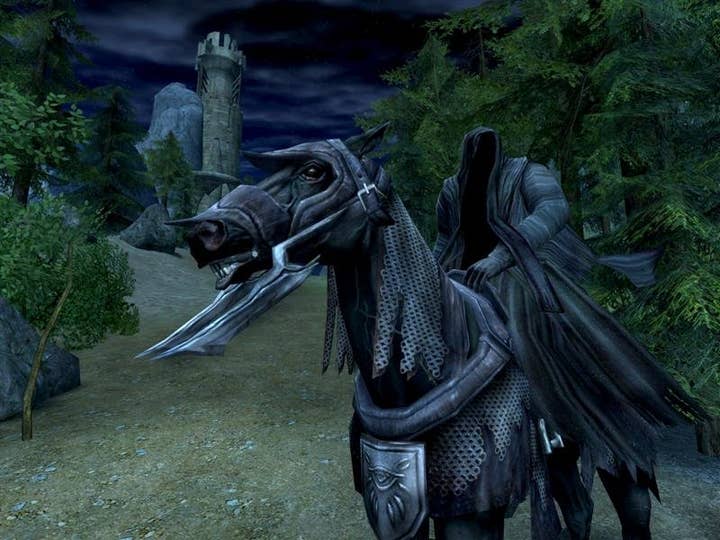The Free Future
John Smedley writes for GamesIndustry.biz on why Sony Online Entertainment is embracing free-to-play
This is an industry that I love, both as a player and a developer, and I get a chance to see things from both perspectives, so I'm grateful to GamesIndustry.biz for allowing me the opportunity to share my thoughts on where I see the future of the MMO industry going on the business model side. I also get the opportunity to travel a lot and see where the rest of the world is at on this subject. That's a fascinating part of my job and an eye-opening one. The world does not revolve around the US in our industry. It really is the US, Europe and Asia - particularly China and Korea, but also a growing MMO audience in Japan - as very distinct markets.
I've been playing online games since 1993. My first online game was the game Cyberstrike. I played it on Genie. I can remember my wife (literally the month after we got married) not being too thrilled with the $600 a month bill I was racking up playing Cyberstrike at $3 an hour. Since then the online gaming industry has really evolved a tremendous amount in gameplay, technology and business models. I'd like to take this opportunity to discuss the evolving business models in the online gaming industry and why I think we're headed towards a Free Future. I'll let you know our current thinking at SOE and provide some insight on what we think they mean. I want to be very clear and say that this thinking has evolved over time and will continue to evolve. That means that we will necessarily have to change with the times so please keep this in mind if you're reading this a year from now.
The assumptions
For me to be able to explain where I think we're at with business models, I want to make sure I've provided the fundamental assumptions we make when we are making online games.
- 01. As game makers we are striving to make the absolute best quality games that we possibly can.
- 02. We are doing this to make a profit.
I recognise that ultimately gamers get to decide if we've succeeded in #1. It really is why we're in this business. We work in this business because we love to make games. We also make them to make money. We operate under the simple belief that if we make a great game then people will pay us for it.
These may seem simple and obvious, but I read a lot of forum threads where people say we should let them play absolutely free. In a perfect world where these games didn't cost us anything to make I agree. But if we spend $50 million making something we have to make that money back and make a profit on the investment.
I can't stress enough that the most important thing here isn't the business model. It's making a great, high quality game. As game makers that really is what we want to do… but today I want to talk about the business models.
Where we are todayToday you can see many different business models out there in online gaming. I'm going to broadly categorise them into Subscription (Sub), Buy the Box (BTB) and Free-to-Play (F2P).
Subscription
The current state of subscription gaming is that most of the larger MMO games in the west use a recurring subscription as a primary business model. There are some notable exceptions though such as our own EverQuest II Extended and Lord of the Rings Online (I don't mean to slight any of our other competitors by the way… just giving examples here) that have gone free-to-play. Subscription gaming is the dominant form of revenue generation in the West simply because World of Warcraft has such a huge subscriber base compared to other games.

We see some very interesting trends in subscription gaming. In our cancellation surveys for EverQuest II, fully 40 per cent of the people that fill them out list subscription fees as one of the primary reasons they quit. Economic times are hard out there and a recurring subscription is something that glares at you from a credit card bill every month. For some people, saving money starts with getting rid of subscriptions that hit the credit card every month. We have some ideas on that which I'll address shortly. But it's fair to say that subscriptions are likely going to be a strong component of revenue for the foreseeable future, although I don't believe they will be remotely as dominant over time. There's another large juggernaut coming out soon in Star Wars: The Old Republic from EA/Bioware. That's a game that I think has a legitimate shot at a 2 million subscription user base and I believe they will stick with the subscription method. In my opinion this is going to be the last large scale MMO to use the traditional subscription business model. Why do I think that? Simply put, the world is moving on from this model and over time people aren't going to accept this method. I'm sure I'm going to hear a lot about this statement. But I am positive I'm right.
Buy the Box
As things stand right now the Guild Wars franchise is the best example of BTB in the MMO space. With Guild Wars, you buy the box and you get to play for free "forever". NCsoft has done very well with this model. It's very popular with consumers. It does have the disadvantage from the publisher's viewpoint of not covering the operational costs over time, but they have added microtransactions as a way to help offset those costs. You could say that games like Call of Duty: Modern Warfare 2 or Battlefield 2 and other retail games with an online component fall under this category as well. Most of these games sell some kind of DLC. The reason this is very popular with consumers is obvious - they like the idea of just buying the game and not worrying about paying for anything after. However, beyond the DLC and a few patches here and there the expectation level of significant changes to the game varies widely from game to game. Both Activision and EA are great about putting out DLC and frequent patches early on. However, over time you really expect to move on to newer versions of the game as opposed to significantly new patches. This is a very important distinction between traditional retail style games and games like MMOs. MMO games (and many of the newer breed of online games) are really software as a service (SAS) that gets upgraded over time. Both models work… but I bet you're going to see a lot more games using the SAS model over time. It's simply a far better return on investment if it's done right.







